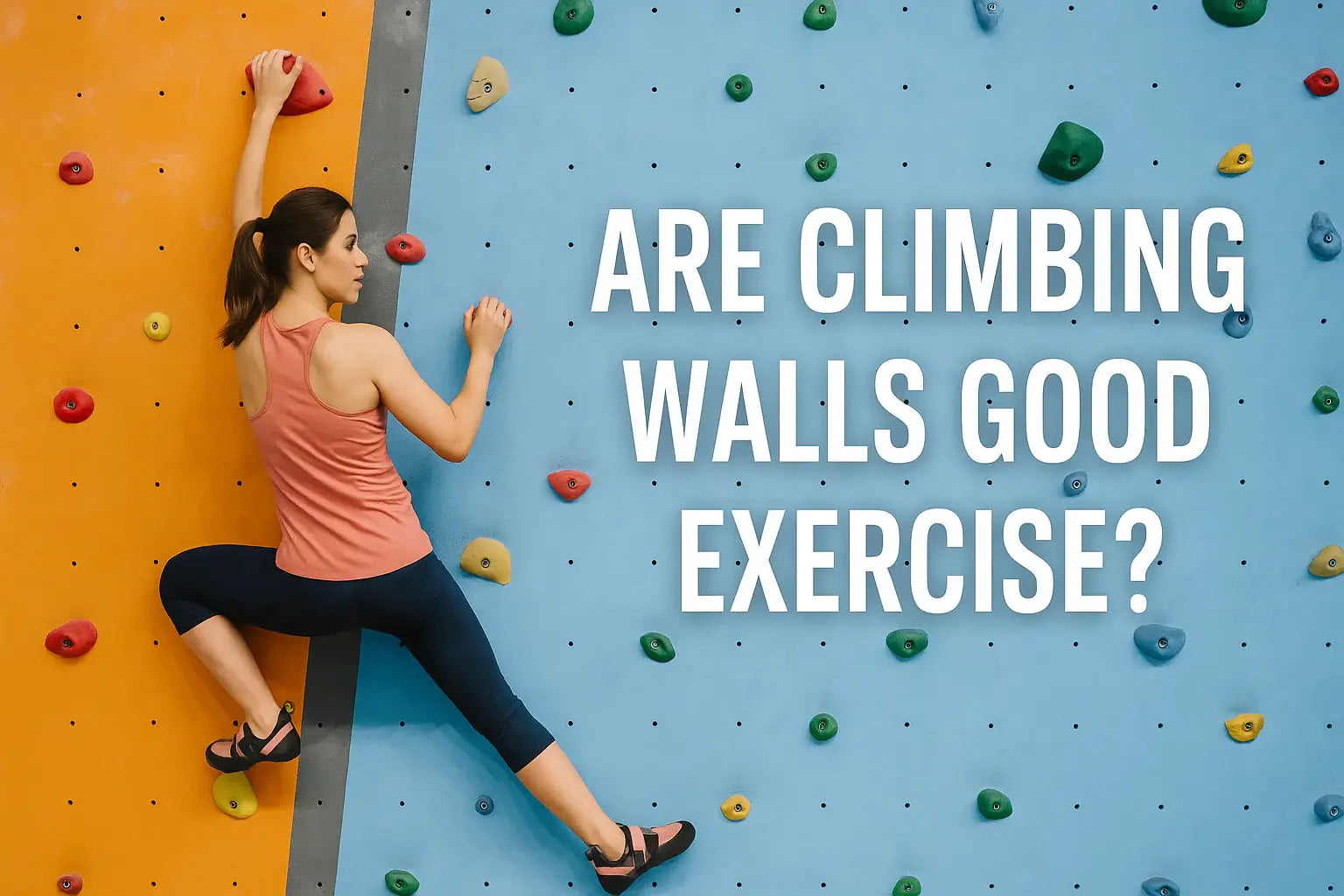
Are Climbing Walls Good Exercise?
Ever tried chasing your child up a climbing wall and ended up more breathless than they were? Climbing isn’t just a playground adventure anymore—it’s a full-body, brain-boosting workout that’s growing in popularity with families. It’s a way to stay fit, have fun, and challenge yourself in ways the gym simply can’t match.
We get it—finding time to exercise with kids around can feel like a puzzle. Climbing frames are turning out to be a brilliant piece of that puzzle. They build strength, flexibility, and even help with stress. Let’s dive into why this activity is climbing its way to the top of family fitness favourites.
The Verdict: Climbing Walls as a Comprehensive Workout
Beyond Just a Sport: A Full-Body Fitness Activity
Engaging Multiple Muscle Groups Simultaneously
Think climbing is just about arm strength? Think again. It works everything—from your fingertips to your toes. As you stretch, grip, and push your way up the wall, your arms, legs, core, and back are all in action. It's like a gym session disguised as an adventure.
Combining Strength and Cardio Elements
Climbing gives you both strength training and a cardio boost in one go. You’re constantly moving, planning, adjusting. Your muscles work overtime, and your heart gets pumping. Plus, it’s never boring—which can’t always be said for a treadmill session.
More Than Physical: Mental and Emotional Benefits
Cognitive Challenge and Problem-Solving
Every climbing route is a mini puzzle. You have to think ahead, plan your next move, and stay focused. It's part workout, part chess game—great for sharpening your brain while working your body.
Stress Reduction and Confidence Building
There’s something satisfying about reaching the top of a wall you once thought impossible. It’s not just about the physical feat—it’s the mental win. That sense of achievement builds confidence. And the focus climbing demands can push stress and worries to the side for a while.

Detailed Fitness Benefits of Climbing Walls
Unleashing Full-Body Strength
Upper Body Power (Back, Shoulders, Arms, Grip)
From gripping tiny holds to pulling yourself up, your upper body does serious work. Your forearms, biceps, shoulders, and back all get a solid session. You’ll start noticing your handshake getting stronger—and opening jam jars gets a lot easier too.
Core Stability and Control (Abs, Obliques, Lower Back)
Climbing doesn’t work your core in isolation—it challenges your whole centre to keep you balanced and stable. Whether you’re twisting for a hold or holding a tricky position, your abs and lower back are always engaged.
Lower Body Engagement (Legs, Glutes, Calves)
Legs do more lifting than you’d think. They power your climb, stabilise your body, and help push you upwards. Your glutes, quads, hamstrings, and calves all get in on the action.

Enhancing Cardiovascular Health and Endurance
Elevating Heart Rate for Aerobic Benefits
Climbing gets your heart rate up quickly, especially on longer routes. It’s a sneaky cardio workout—you might not realise how hard your heart’s working until you reach the top and feel that rush.
Building Muscular Endurance for Sustained Effort
The longer you climb, the more your muscles learn to work under pressure. That builds stamina, not just for climbing, but for everyday life—carrying kids, shopping bags, or taking the stairs without puffing.
Improving Flexibility, Balance, and Coordination
Increased Range of Motion and Agility
Climbers are constantly stretching, reaching, and twisting. That improves flexibility over time. You’ll notice you can reach higher, bend deeper, and move more freely—not just on the wall, but off it too.
Developing Neuromuscular Coordination and Proprioception
Balancing on tiny footholds or shifting your weight mid-air fine-tunes your coordination. It improves your body awareness and control—things that help in everything from dancing to walking on uneven ground.
Calorie Burn and Weight Management
High Energy Expenditure per Hour
Climbing is high energy—there’s no coasting. Every move demands effort. Depending on intensity, you can burn hundreds of calories an hour without even realising it because you’re too busy concentrating on the climb.
Contribution to Sustainable Weight Loss Goals
Because it’s engaging and enjoyable, you’re more likely to stick with it. That consistency helps with long-term weight goals—and it feels more like play than punishment.

Getting Started: Maximising Your Climbing Workout
Suitability for All Fitness Levels
Adaptable for Beginners to Advanced Climbers
Never climbed before? No problem. Routes are graded by difficulty, so there’s always a way to start small and build up. It’s great for kids, beginners, and seasoned climbers alike.
Importance of Proper Technique and Instruction
Getting the basics right from the beginning helps prevent injury and makes climbing more enjoyable. Good technique makes climbing smoother, more efficient—and a lot less tiring.
Potential Risks and How to Mitigate Them
Common Injuries and Prevention Strategies
Like any sport, climbing comes with risks—finger strains and sprains are most common. But with proper warm-ups, good form, and a gradual approach, most injuries can be avoided.
Safety Equipment and Controlled Environments
Indoor climbing gyms are designed for safety. With padded floors, trained staff, and proper gear, you can focus on climbing without worrying. It’s the ideal place to learn, improve, and have fun.
Conclusion:
Climbing walls offer more than just fun—they're a fantastic way to get stronger, fitter, and more focused. Whether you're scaling your first wall or chasing your child to the top, it's a workout that keeps on giving.
So grab your chalk bag, lace up your shoes, and give it a go. You might just find your new favourite way to stay active.
Have you checked out our other posts?
Is A Toddler Climbing Frame Worth Having?
Are Climbing Frames Good For Kids?
Are Toddler Climbing Frames Safe?


Comments
Leave a comment